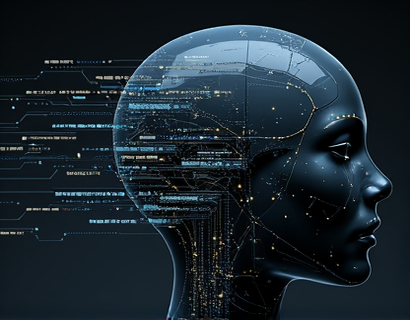Transforming Education with AI-Powered Chat Interfaces: A Deep Dive into Specialized Insights for Educators, Families, and Children
The integration of artificial intelligence in educational platforms has opened new avenues for learning and interaction. One such innovation is the AI-powered chat interface, designed to provide specialized insights into various services and educational content. This technology ensures that users, particularly educators, families, and children, receive accurate and safe information. The focus here is on an advanced AI chat platform that caters specifically to the needs of these user groups, offering a child-friendly version to ensure secure and educational interactions.
Understanding AI-Powered Chat Interfaces in Education
AI-powered chat interfaces leverage natural language processing and machine learning to understand and respond to user queries in real-time. These chatbots are trained on vast datasets, including educational content, industry insights, and safety protocols, making them invaluable tools in the educational sector. For educators, these chat interfaces can provide instant access to lesson plans, teaching strategies, and industry trends. Families can use them to find reliable resources for home learning and child development. For children, the chat interfaces are designed to be engaging and educational, offering age-appropriate content and interactive learning experiences.
Specialized Insights for Educators
Educators are the backbone of the educational system, and providing them with specialized insights is crucial for enhancing their teaching methods and student outcomes. The AI chat interface offers a comprehensive knowledge base that covers a wide range of topics, from curriculum development to classroom management. For instance, a teacher can ask about best practices for teaching a specific subject, and the chatbot will provide evidence-based strategies and resources. The platform can also offer real-time updates on educational policies, new teaching tools, and professional development opportunities. This ensures that educators are always informed and equipped with the latest knowledge to support their students effectively.
Resources for Families
Families play a vital role in a child's education, and having access to reliable information can significantly enhance their support. The AI chat interface serves as a valuable resource for parents and guardians, providing insights into educational content, learning activities, and child development milestones. For example, a parent can inquire about age-appropriate reading materials or activities to foster cognitive development, and the chatbot will suggest suitable options based on the child's age and interests. Additionally, the platform can offer guidance on how to create a conducive learning environment at home, manage screen time, and address common educational challenges. This support system helps families feel more confident and capable in their role as educational partners.
Ensuring Safety and Accuracy for Children
When it comes to children, safety and accuracy are paramount. The AI chat interface is designed with robust safety measures to ensure a secure and positive experience for young users. Content verification is a critical component, where all information provided by the chatbot is cross-checked against trusted sources to guarantee its accuracy and reliability. This is particularly important in an educational context, where misinformation can have detrimental effects on a child's learning and development. The chatbot is programmed to avoid sensitive topics and to respond in a manner that is appropriate for the child's age and maturity level.
Child-Friendly Version: A Safe Learning Environment
Recognizing the unique needs of children, the AI chat platform offers a specialized child-friendly version. This version is tailored to be engaging and educational, with a user interface that is both visually appealing and easy to navigate. The chatbot uses simple language and interactive elements to keep children engaged while they learn. For instance, a child can ask about a particular topic, and the chatbot will respond with a story, game, or activity related to that topic. This approach not only makes learning fun but also helps in building a positive association with education. The child-friendly version also includes parental controls, allowing parents to monitor and guide their child's interactions.
Enhancing Educational Content through AI
The AI chat interface goes beyond just providing information; it actively enhances the educational content available to users. By analyzing user interactions and feedback, the chatbot can identify gaps in the existing content and suggest areas for improvement. For educators, this means receiving recommendations for new teaching materials or resources that align with their students' needs. For families, the chatbot can suggest educational apps, books, and online courses that are both fun and educational. This continuous feedback loop ensures that the content remains relevant and effective, adapting to the evolving educational landscape.
Collaboration and Community Building
One of the strengths of the AI chat interface is its ability to foster collaboration and community building among educators, families, and students. The platform can facilitate discussion forums where users can share experiences, ask questions, and exchange resources. For educators, this can be a valuable space to collaborate on lesson plans, share success stories, and seek advice from peers. Families can connect with other parents to share tips on home education and child development. For children, the chatbot can create virtual learning groups where they can collaborate on projects and learn from one another. This sense of community not only enriches the learning experience but also helps in building a supportive network for all users.
Personalized Learning Paths
Every child is unique, with different learning styles and paces. The AI chat interface can help create personalized learning paths for each student, tailored to their individual needs and interests. By analyzing the child's performance and preferences, the chatbot can recommend customized learning activities and resources. For example, a child who excels in science but struggles with reading can receive additional reading exercises paired with science-based stories to make the learning process more engaging. This personalized approach ensures that no student is left behind and that each child can reach their full potential.
Integration with Educational Institutions
For educational institutions, integrating the AI chat interface can significantly enhance their operations and student outcomes. Administrators can use the chatbot to manage schedules, track student progress, and communicate with parents and teachers. The chatbot can send automated reminders for upcoming events, provide updates on student performance, and offer suggestions for improving school programs. For teachers, the chatbot can assist in grading, provide instant feedback on assignments, and suggest teaching strategies based on student data. This integration streamlines administrative tasks, allowing educators to focus more on teaching and less on paperwork.
Addressing Common Concerns and Challenges
While the benefits of AI-powered chat interfaces in education are numerous, there are also common concerns and challenges that need to be addressed. One major concern is the potential for over-reliance on technology, which can detract from the human element of teaching and learning. To mitigate this, the chatbot should be designed to complement rather than replace human interaction. Educators and parents should continue to play a central role in guiding and supporting students. Another challenge is ensuring that the chatbot's responses are culturally sensitive and inclusive. The platform must be trained on diverse datasets to avoid biases and provide content that resonates with a wide range of users.
Future Prospects and Innovations
The future of AI-powered chat interfaces in education is promising, with ongoing advancements in AI technology opening new possibilities. One area of innovation is the integration of augmented reality (AR) and virtual reality (VR) to create immersive learning experiences. The chatbot can guide students through virtual labs, historical sites, and interactive simulations, making complex concepts more tangible and engaging. Additionally, the use of emotional intelligence in chatbots can help in identifying and addressing students' emotional needs, providing support and resources for mental health and well-being. As AI continues to evolve, the potential for enhancing educational outcomes through chat interfaces will only grow.
Conclusion
The AI-powered chat interface represents a significant leap forward in educational technology, offering specialized insights and resources to educators, families, and children. By ensuring accuracy, safety, and engagement, these chatbots can play a crucial role in shaping the future of education. The child-friendly version adds an extra layer of security and educational value, making it an indispensable tool for young learners. As the technology continues to advance, the potential for transforming educational experiences is vast, paving the way for a more informed, engaged, and successful generation of learners.











































